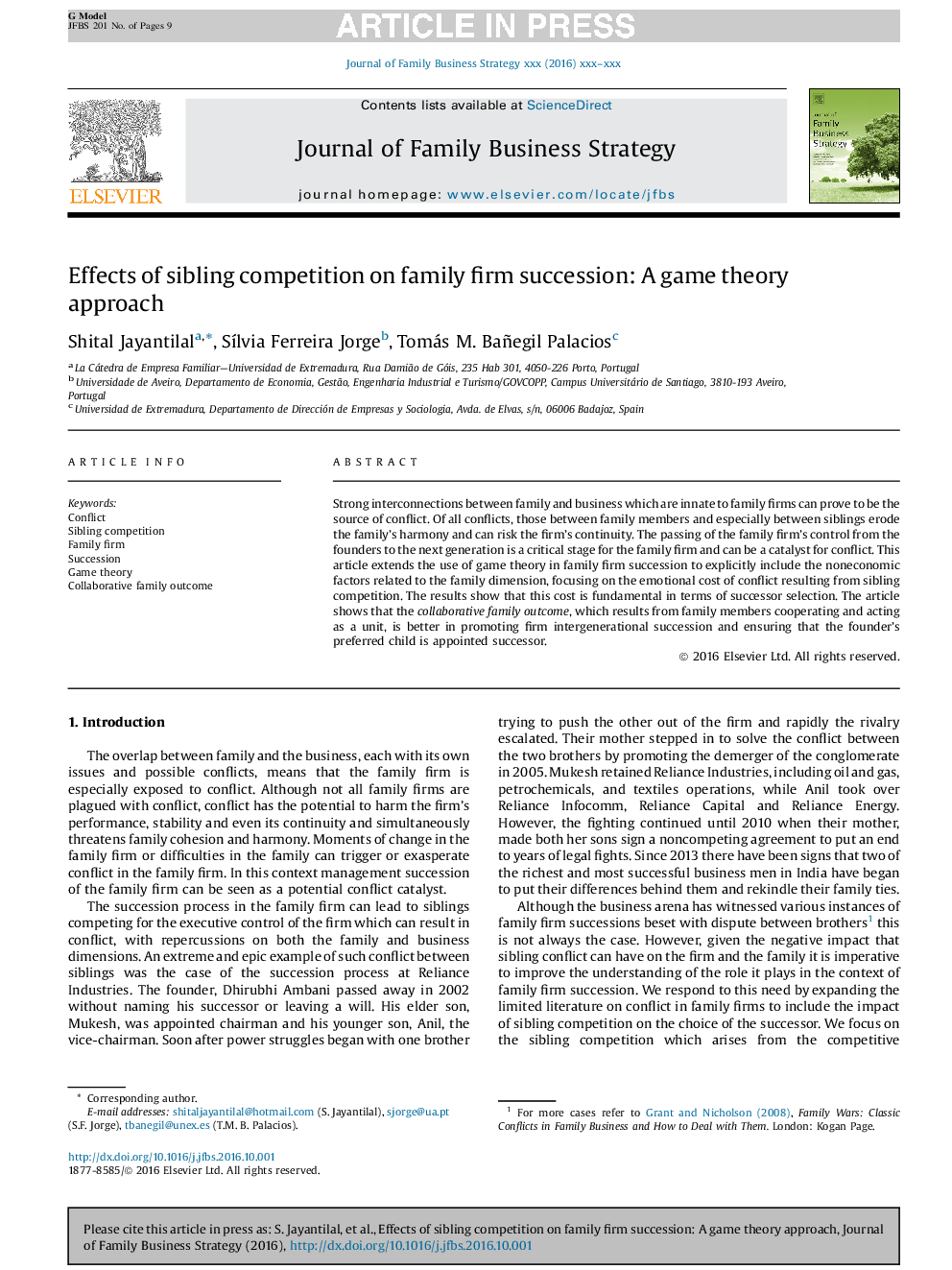| Article ID | Journal | Published Year | Pages | File Type |
|---|---|---|---|---|
| 5110079 | Journal of Family Business Strategy | 2016 | 9 Pages |
Abstract
Strong interconnections between family and business which are innate to family firms can prove to be the source of conflict. Of all conflicts, those between family members and especially between siblings erode the family's harmony and can risk the firm's continuity. The passing of the family firm's control from the founders to the next generation is a critical stage for the family firm and can be a catalyst for conflict. This article extends the use of game theory in family firm succession to explicitly include the noneconomic factors related to the family dimension, focusing on the emotional cost of conflict resulting from sibling competition. The results show that this cost is fundamental in terms of successor selection. The article shows that the collaborative family outcome, which results from family members cooperating and acting as a unit, is better in promoting firm intergenerational succession and ensuring that the founder's preferred child is appointed successor.
Related Topics
Social Sciences and Humanities
Business, Management and Accounting
Business and International Management
Authors
Shital Jayantilal, SÃlvia Ferreira Jorge, Tomás M. Bañegil Palacios,
